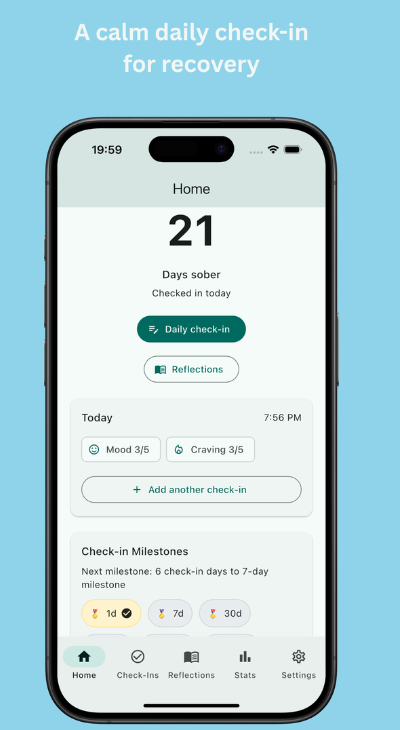Welcome to part 3 of the Complete Guide to Curing Porn Addiction.
We're going to be covering:
- Preparing to take action
- Nutrition
- Exercise
- Sleep
After that, in part 4, we're going to be diving right into taking action and following through on quitting - don't forget to subscribe to keep in the loop!
There is a lot of content for us to cover so we're going to dive right in. If you missed the first part (link) or second part (link) it's really important that you go back and read those now.
As always, if you have any questions, please feel free to reach out and let us know. To cure porn addiction, you're going to need to put in some serious work. It won't be easy but it will be worth it.
Ready to quit porn for good?
If you're sick and tired of being addicted to porn we've built the ultimate course to help you. You CAN fight porn and you can do it from home.
We are going to start preparing to take action.
Like any addiction, you can’t just wake up one day and say I’m done. It might work for a few days but a relapse is usually inevitable. The reason that so many people have success in my addiction courses is because I do not tell you to just stop. This is why we reviewed the history and hopefully you gained some knowledge about the behind the scenes stuff that goes on as well as some perspective about your own self.
And this is also why we are coming up with a plan and not just winging it. It takes time, preparation, and knowledge in order to kick an addiction. There are four more sections before you take action and each section is equally important.
This section, we are going to talk about changing routines, setting a quit date, diet, exercise, and sleep.
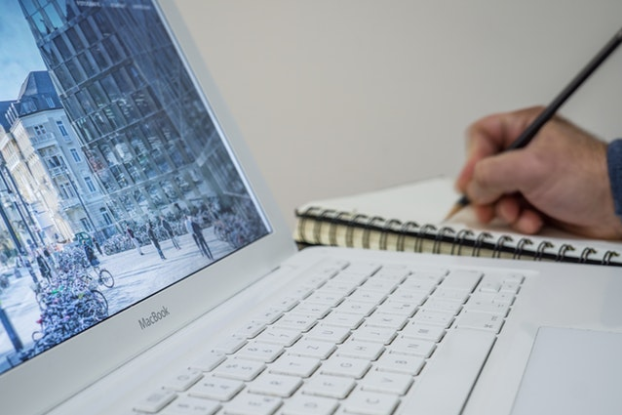
Changing Routines
Let’s talk about why changing your routine is important. An addiction is like a habit. Remember when you logged your porn watching time? What did you notice about your routine?
For this section, I want you to write down your daily routine. Then, I want you to make note of the times of day you typically watch porn.
Is it in the morning before you go to work?
Is it when you get home from work or perhaps at night when everyone is sleeping?
Maybe it’s all of those things.
After you write your current schedule I want you to rewrite your daily schedule so that you are doing something before and during those times you typically watch porn. For example, if you currently watch porn right when you get home from work, try and do something else right when you get home. Maybe eat dinner earlier or take your dog for a long walk. Make it a habit and stick with it.
If your new schedule starts to not work, redo it again and again and again while finishing this guide.
Do not get complacent with this task. Some people find that redoing their schedule is really helpful while some people need to re-evaluate every few days. And if that’s you then that’s okay too.
Having new routines is always good for the mind!
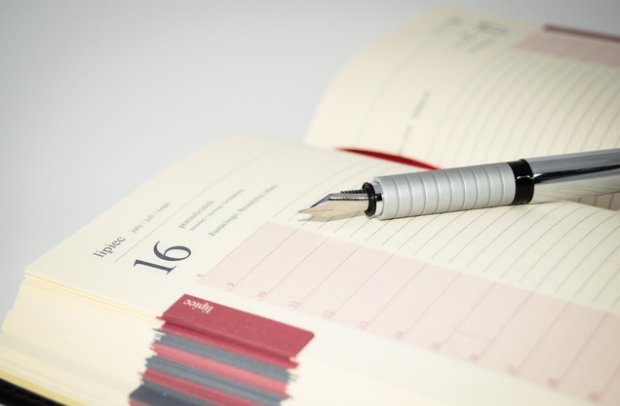
Setting a Quit Date
This is my favorite section and I hope it will be yours too!
The reason this is my favorite chapter is because I’m really excited that you’ve put all the work in and now you can look forward to the day you will be porn free. Setting a quit date is really important. If there are people in your life that know about your addiction it’s important for them to know the day you are quitting so not only are you holding yourself accountable but others can hold you accountable too.
I recommend giving it about a week from today when setting your date. This is because there are three more sections after this one where we will be talking about diet, exercise and sleep. You’ll need to know this information before your quit date because it does take a little planning when focusing on these other core aspects. For example, we’ll be talking about how to get better sleep and how much you should be sleeping each night. You’ll want to know that before quitting so that on your quit date you will be getting the full experience of changing your whole life, not just quitting porn.
Also, by giving it a week, it gives you an opportunity to taper down. If you don’t taper, you’ll be quitting cold turkey which is fine but you’ll have better success if you at least try and watch less and less each day. Quitting porn won’t be as difficult.
So go ahead and pick a date and write it down. If you can tell someone then great! If not, just know that’s the day where your whole life is going to change.
Ready to quit porn for good?
If you're sick and tired of being addicted to porn we've built the ultimate course to help you. You CAN fight porn and you can do it from home.
Nutrition, Exercise, and Sleep
This is a brief section about why nutrition, exercise, and sleep is critical to your success in this guide.
Your diet plays a role in how you feel every day regardless of any addiction. Those who overeat, undereat, eat too much sugar, too many processed foods, too much soda, will not be performing at their peak. I want you to perform at your peak so that you can fully recover from your addiction.
If you stop porn but eat crappy food then you’ll still have brain fog and lethargy. Your body will convince you that quitting porn is not helping your mental state.
When it comes to exercise, your body needs to move and this is really important for improving your sexual abilities as well, especially if you suffer from erectile dysfunction disorder or female sexual dysfunction. You need to get the blood flowing through your veins and combined with a good diet you are going to notice a significant lifestyle change.
And last, sleep. Sleep is when your brain repairs itself and without sleep you’ll experience much of what we just talked about: lethargy, brain fog, and so on. These three concepts are crucial to your recovery and that’s why I have an entire chapters dedicated to each. Even if you feel you eat well, exercise, and get enough sleep, please don’t skip any part of this guide.
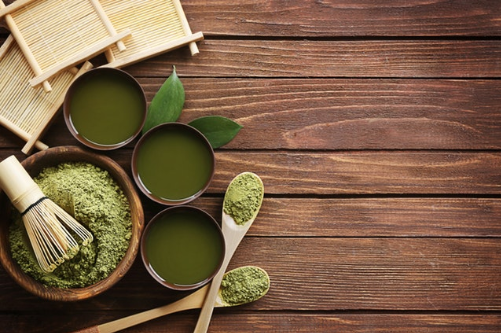
Extra Resources and Readings
Nutrition
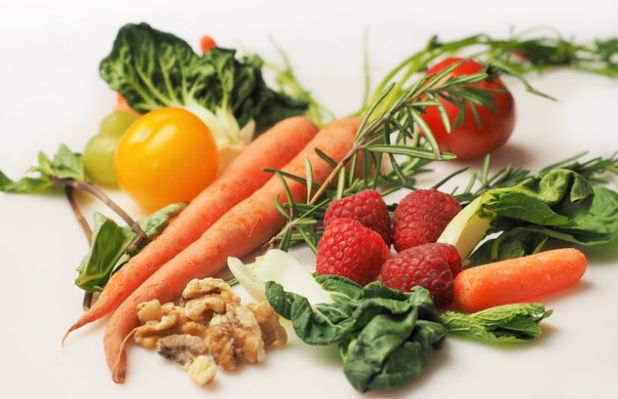
You are almost ready to take action but before you do, you are going to need to understand the importance of nutrition, exercise, and sleep.
In this section, we are going to talk about sugar and how it affects the brain, eating the right foods and portion control. Even if you are a healthy eater, I challenge you to read each section and do better.
Nobody has a perfect diet and everyone has something they can improve on. If you have a terrible diet or if you a good and healthy diet, this section is for you and everyone in between.
How Sugar Affects the Brain
Remember in part one of the guide when we talked about the negative effects porn has on your brain and we talked about dopamine being the reward system? Sugar works in the exact same way.
I am telling you that it’s important for you to quit sugar while you are quitting porn for a very good reason.
When you quit porn, your brain is going to be looking for ways to increase your dopamine levels because your dopamine levels will be very low, at first. Many people who quit porn turn to sugar because it makes them feel good and activates the dopamine receptors. The problem with this is that you are literally trading one addiction for another.
It’s important to read ingredients because sugar seems to be in almost everything. #pornaddiction #sobrietysuccess
When you quit porn, I want you to eventually be able to find pleasure in good for you activities. By getting rid of all of the baggage so to speak, like sugar, junk food, alcohol, cigarettes, porn, etc. your brain will start repairing itself so fast you’ll be amazed that in just a short amount of time you’ll be free from it all and the best part is, you’ll find pleasure in ways you never thought possible.
You’ll have better relationships, be a better student, be more productive at work and the list goes on and on.
While you may think sugar is such a small point to discuss, it’s actually rather large and powerful.
Start as soon as possible. Cut out those sugar drinks like soda and juice, start reading labels, and do not buy the sugar junk food: donuts, pies, cookies, etc.
Eating the Right Foods
I talked about the importance of getting a medical checkup with blood work. When you get the results you’ll know if you are lacking certain vitamins. That’s important to know so you can make changes in your diet.
Because everyone has different preferences and comes from different cultures I am not going to recommend a specific nutrition plan. I do encourage the idea of finding a nutrition plan, not necessarily a diet plan, but a nutrition plan that looks interesting to you. If you’ve always wanted to try going vegan, gluten free, paleo, whole30, and the list goes on and on, now is the time to try it. Most plans you can purchase as a book or online and they come with specific guidelines.
A nutrition plan isn’t for everyone however, and if it’s not for you that’s okay too. But, you do need to look at your current diet and see where you can make improvements. Everybody can make improvements somewhere.
We already talked about eliminating the sugar from your diet so that takes care of one main key factor to making sure your body is operating at peak performance. Some other changes you need to make are these:
Portion Control
This is our last topic in the nutrition section. Let’s talk about portion control.
Since nutrition plays a significant role in the recovery process it’s important to understand that eating the right foods is only part of it. The other part is eating the right amount of food.
I’m not big on counting calories. If you are overweight, you’ll want to try and eat a little less. If you are underweight, you’ll want to try and eat a little more. If you are the right weight, you’ll want to try and maintain where you are at. So check your BMI just to be sure you know exactly where you fall. You can find the BMI calculator online.
There are reasons that weight and portion control are topics in this porn addiction. First, when you are knee deep into your addiction, it is likely you are not thinking about making good food choices. Some people watch so much porn they forget to eat and others overcompensate with food when they are not watching porn which is why some of you may be overweight and some of you may be underweight. But the number really isn’t the important thing. While it is important to know where you are at, the most important thing is changing your lifestyle.
When you are eating, focus on how much you are eating in each setting. You will know, without having to count calories, whether or not you are eating too much. If you are overweight then try a nutrition plan or reducing the amount of food you eat in each setting.
A typical diet consists of breakfast, lunch, dinner and a snack or two. What you don’t want to do is snack all day and skip a meal. You also don’t want to skip meals like breakfast or lunch only to gorge at dinner. A steady balance is optimal.
If you want a challenge, do some research on intermittent fasting. There’s a lot of research on the health benefits of doing small fasts each day or one day fasts a couple times per week. I posted an article about it if you want to learn more.
Extra Resources and Readings
Video: How sugar affects the brain - Nicole Avena
Article: The 4-week fat-burning meal plan
Article: NIH Healthy Eating Plan
Article: Dr. Mercola's Nutrition Plan
Article: 28 DAYS TO LEAN MEAL PLAN
Article: 5 Weeks to Your Best Body Ever: What to Eat
Article: Intermittent Fasting 101 - The Ultimate Beginner's Guide
Exercise
In this section we are going to talk about the importance of keeping your body physically active. If you can make changes in all areas of your life, your recovery will be that much easier. Exercise helps addiction and I’m here to help you find the right program or plan.
How Exercise Helps Addiction
There are some incredible health benefits for anyone who struggles with any addiction which are peer-reviewed and part of research findings. Here are the general benefits of exercising during recovery and beyond:
- Provides Pleasurable States
- Provides Positive Alternatives
- Exercise can also serve as a healthy, positive means of filling unstructured time
- Reduces Depressive Symptoms and Negative Mood
- Both aerobic and strength training exercise programs during the course of alcohol treatment have resulted in decreased depressive and anxiety symptoms
- Decreases Stress Reactivity and Improve Coping
- Exercise can serve to reduce stress reactivity and to supplant drinking as a primary coping mechanism
- Increases Self-Efficacy
- Enhancing one's self-efficacy is likely to result in positive behavior change.
- Decreases urges to drink
- Moderate-intensity exercise may provide short-term relief from urges to drink alcohol
All these findings (plus more details if you want to view the scientific details can be found via the US National Library of Medicine National Institutes of Health website.
Finding the Right Program
Now that you know how beneficial staying active is for your body and brain it’s important to pick a program that you enjoy. When I say pick a program I don’t necessarily mean you have to go out and spend money on a specific program (unless you want to of course). There are thousands of programs you can choose from. I want you to find something that you actually enjoy because if you enjoy it you will more than likely stick with it and turn it into a fun hobby.
Thinking outside of the box is important. Here are some ideas:
- Find an app
- Join a gym
- Hire a personal trainer
- Join an adult sports team (softball, soccer, etc.)
- Take a class (yoga, zumba, etc.)
- Horseback riding
- Running/Hiking/Swimming
Your possibilities are endless but you need to think of something and try it. If you don’t like it, try something else. The important thing is, is that you are trying and the goal is to eventually find pleasure in what you are doing.
Good luck in your program!
That concludes this section on exercise we talked about the importance of keeping your body active and how that helps recovery. We also talked about how to go about doing so by finding something you enjoy. Think about these things and start taking action as soon as possible to ensure you are fully into a program no later than your quit date.
Extra Resources and Readings
Article: Aerobic Exercise for Alcohol Recovery: Rationale, Program Description, and Preliminary Findings)
Sleep
In this section we are going to talk about the importance of getting good sleep and how to implement sleep goals and good habits.
How much sleep do you get now?
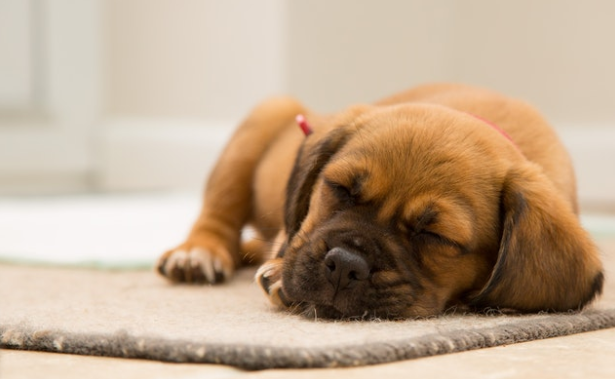
I want you to think about how much sleep you are currently getting. If you’re up until 2am watching porn, you’re probably not getting enough sleep. Be honest and think back over the past couple of nights.
I want you to take a log for the next couple of nights and then document how much sleep you get. The average person needs 7-9 hours of sleep every night. If you find yourself tired or drowsy during the day, you may not be getting enough sleep.
If you have a fitness tracker that logs sleep, you can see how much sleep you’re getting with the app. If not, just log the time you fall asleep and the time you wake up.
Tips for Getting Better Sleep
Most adults would agree that they don’t feel like they get enough sleep and that’s because they probably don’t. Sleep is very important for the brain and for recovery so it’s necessary to start practicing how to sleep now. Lack of sleep can also cause lack of judgement. When you’re tired, you don’t think clearly.
So here are some tips to getting a better night’s sleep.
Wake up at the same time every day, even on weekends.
Limit daytime sleeping (one 20 min nap is okay but no more than that)
Set a bedtime that allows 7-9 hours of sleep
Eat your last meal at least three hours before bed
Turn off all screens, (phones, laptops, tv, etc.) one hour before bed
Read, meditate, pray, listen to music, etc. to fall asleep
If you have trouble falling asleep, don’t give in or give up. Give it a couple of weeks for your body to get used to the change in routine. If you continue to have trouble falling asleep, you can try taking some melatonin or other natural sleep remedies. Stay away from sleep aides unless absolutely necessary.
If you have trouble staying asleep or suffer from insomnia, don’t lay in bed trying to fight it. If you are awake longer than one hour, get up, get a drink, do something calm. Do not watch TV or look at a screen. You could try reading or journaling for about 30 minutes and then try to sleep again. This trick really can be helpful.
If you suffer from chronic insomnia and none of these tips work for you, you should make an appointment with your doctor.
Setting a Sleep Goal
Many of you have fitness trackers with sleep apps and I find this is a good way to set certain goals but don’t worry if you don’t have one. You can do it manually.
Almost everyone can do better with their sleep. In the beginning of this section we talked about you making a note of how much sleep you are really getting. Now I want you to set a sleep goal for yourself. Be sure to set goals that go beyond just the amount of hours you are sleeping. So, for example, if you are currently sleeping about 5 hours per night, set a sleep goal of 7 hours per night. On top of that, be sure to set your bedtime goal and don’t forget about including the quality of sleep you are having.
For example, you could set a goal of having 7 hours of sleep, having a bedtime of 11 pm and not waking up more than twice per night. It will take awhile to get there but if you implement the nutrition, exercise, and other sleep tips, you will notice that after only a few days of solid practice and implementation your quality of sleep will dramatically increase.
If you find yourself having troubles, ask yourself about how your nutrition has been. For example, if you drink a lot of caffeine or alcohol, your quality of sleep may be hindered. Try to stay away from alcohol completely and limit your caffeine intake to mornings and early afternoons only. Or, if you are eating a lot of sugar and fatty foods, that’s not good for your sleep either. If you are exercising regularly then your quality of sleep should also improve.
Good luck with your sleep goals!
Extra Resources and Readings
Conclusion
That concludes this section where we talked about the importance of sleep. The last four sections were all about preparation and now you are ready to take action.
Make sure you've read part 1 and part 2 of The Ultimate Guide to Curing Porn Addiction because in part 4 we're going all action based. That means we're going to set a quit date, work on triggers, managing withdrawal and much, much more.
Ready to quit porn for good?
If you're sick and tired of being addicted to porn we've built the ultimate course to help you. You CAN fight porn and you can do it from home.
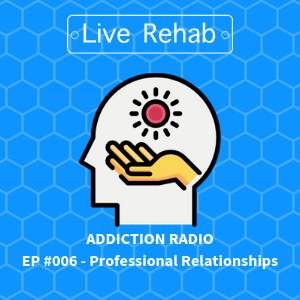

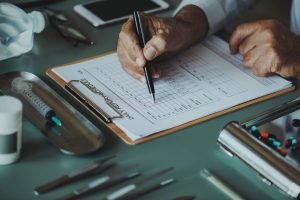
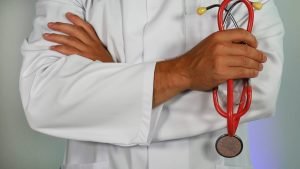
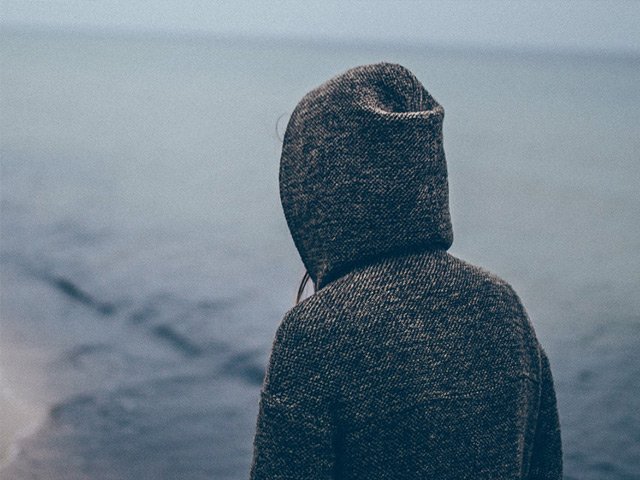
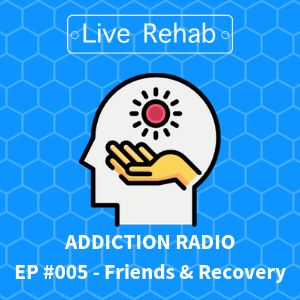
 The following post is a guest article from our friend Eva Benoit – Life Coach and Author of The 30-Day Plan for Ending Bad Habits and Improving Overall Health (Fall 2018) EvaBenoit.com.
The following post is a guest article from our friend Eva Benoit – Life Coach and Author of The 30-Day Plan for Ending Bad Habits and Improving Overall Health (Fall 2018) EvaBenoit.com.